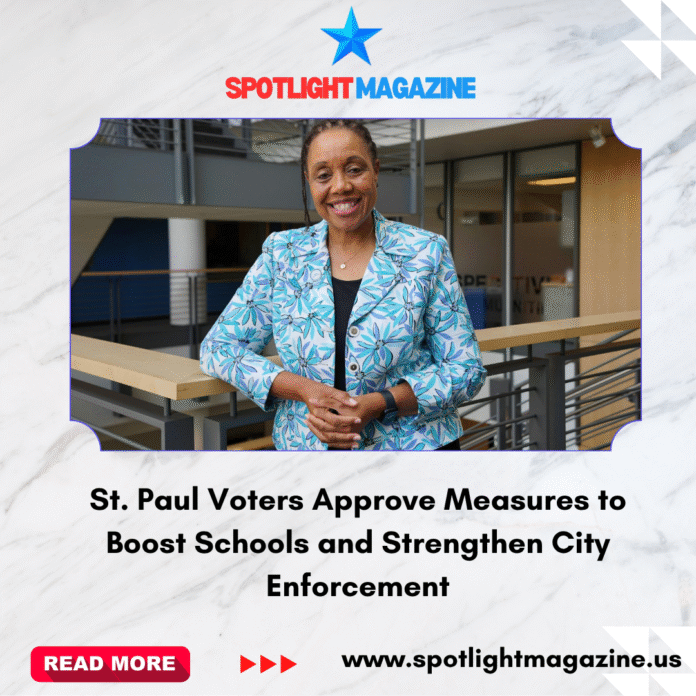St. Paul voters approved two major ballot measures on Tuesday, both aimed at strengthening local governance and improving public education. The measures, backed by a broad coalition of citizens, city leaders, and advocacy groups under the slogan “Vote Yes Twice,” were designed to give the city more authority to enforce its rules and to ensure the financial stability of its schools.
For many residents, the vote was personal. “I’m a big advocate for public schools,” said 45-year-old Donald Venticinque from Summit Hill. “Both my kids go to public school. I want what’s best for not only my kids, but all the kids.”
One of the measures centered on education funding. St. Paul Public Schools asked voters to approve a $37.2 million annual property tax increase for the next decade to maintain and enhance key programs. The district emphasized that the funds are crucial to keep vital enrichment activities such as music, art, language, cultural studies, and college preparation available to students. Superintendent Stacie Stanley said the measure’s approval ensures that these programs—often what make schools exciting and engaging—will remain intact.
“This operating levy will help us maintain the arts and music, language and culture, and college and career readiness programs that fuel our students’ excitement for learning and make our schools shine,” Stanley said. She noted that while the additional funding won’t solve every problem, it gives the district a stronger foundation for future planning and better outcomes for students.
Had the measure failed, district leaders warned that several popular programs would face cuts or elimination. Now that it has passed, school officials plan to begin reviewing the possibility of consolidating some schools next year, though Stanley stressed that such decisions would be made in close collaboration with the community.
The second measure dealt with expanding City Hall’s ability to enforce local ordinances. Voters agreed to give city officials the power to issue administrative citations with fines for certain violations, including issues such as neglected buildings and wage theft. The St. Paul City Council had already supported the measure unanimously earlier this year, but some residents believed voters should make the final decision—prompting the issue to appear on the ballot.
Supporters of the measure argued that it would help the city more effectively address ongoing problems with abandoned or poorly maintained properties and ensure that employers comply with labor standards. They said the new system would make enforcement faster and more practical, instead of relying solely on lengthy court processes.
Opponents, however, expressed concern that the city might overuse its new authority by issuing fines for minor issues like failing to shovel sidewalks or mow lawns. Still, the majority of voters sided with proponents who said the changes would make neighborhoods cleaner, safer, and more accountable.
Together, the two approved measures signal that St. Paul residents want their city to have the tools and resources it needs to thrive. By voting to boost school funding and strengthen City Hall’s enforcement power, voters sent a clear message: they are willing to invest in their community’s future, support strong public education, and ensure fair and effective local governance.


